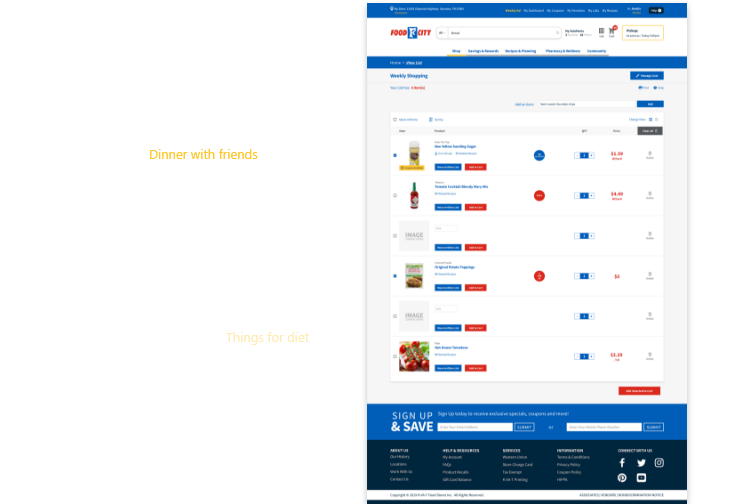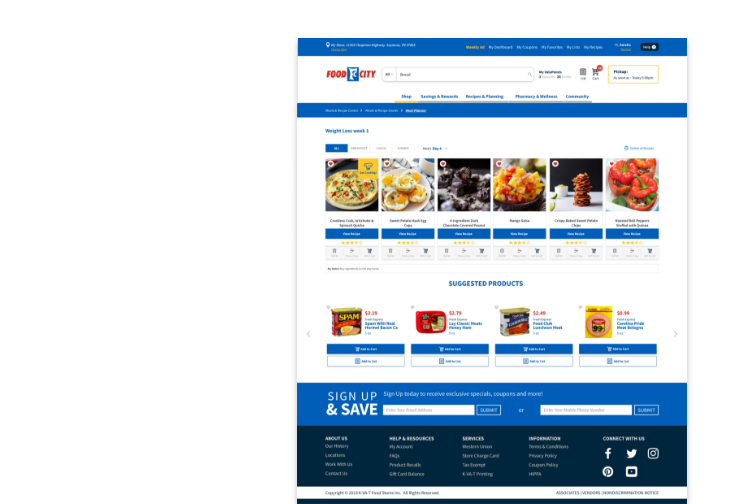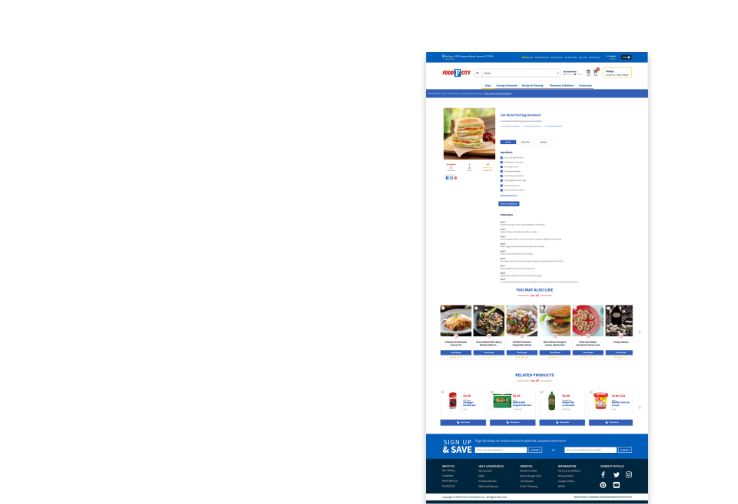
Wellness Club — Immune Health
Abingdon, VA. -
Tuesday, Oct 1, 2024.
Written by: Nicole Pazdziorko, RDN, LD, Food City Dietitian
As we enter fall and winter months, cold and flu season is upon us once more, bringing discussions about immune health to the forefront. A resilient immune system is essential for maintaining optimal health and defending against illness as cold and flu season approaches. As the name suggests, the immune system is not a single component of the body that acts alone to fight disease, but an intricate network of different organs, chemicals, proteins and cells – none of which are independently capable of maintaining health and fending off disease. Given the complexity of this system, immunity is not something that can be given a quick boost within a day; instead it is built over time. Good eating habits play a role in helping to establish that front line of protection against illness and injury.
Vary Your Diet
The gut microbiome interacts with our immune system and has profound influence on overall health. A diverse microbiome filled with beneficial bacteria is key to a healthy gut. This can be supported by eating a varied diet, specifically one that is rich in fiber. This helps to lay the foundation upon which a healthy gut can be built. To ensure adequate fiber intake, aim to choose a wide array of plant foods, like fruits and vegetables, beans, lentils, whole grains, nuts and seeds.
Add in Probiotics
Probiotics help to support a healthy gut by populating it with good bacteria. Probiotics can be found in a variety of fermented foods. The most common fermented foods that naturally contain probiotics, or have probiotics added to them, include yogurt, kefir, kombucha, sauerkraut, pickles, miso, tempeh, kimchi, and sourdough bread.
Focus on Key Vitamins and Minerals
Specific vitamins and minerals support immune health by contributing to white blood cell production and promoting immune cell function. These key nutrients include vitamins A, C and D, iron and zinc. A balanced meal plan which includes: bright orange vegetables like carrots and squash and dark leafy greens; citrus fruits and berries; lean beef, beans and seafood; and nuts and seeds can help to ensure adequate intake to build immune function.












